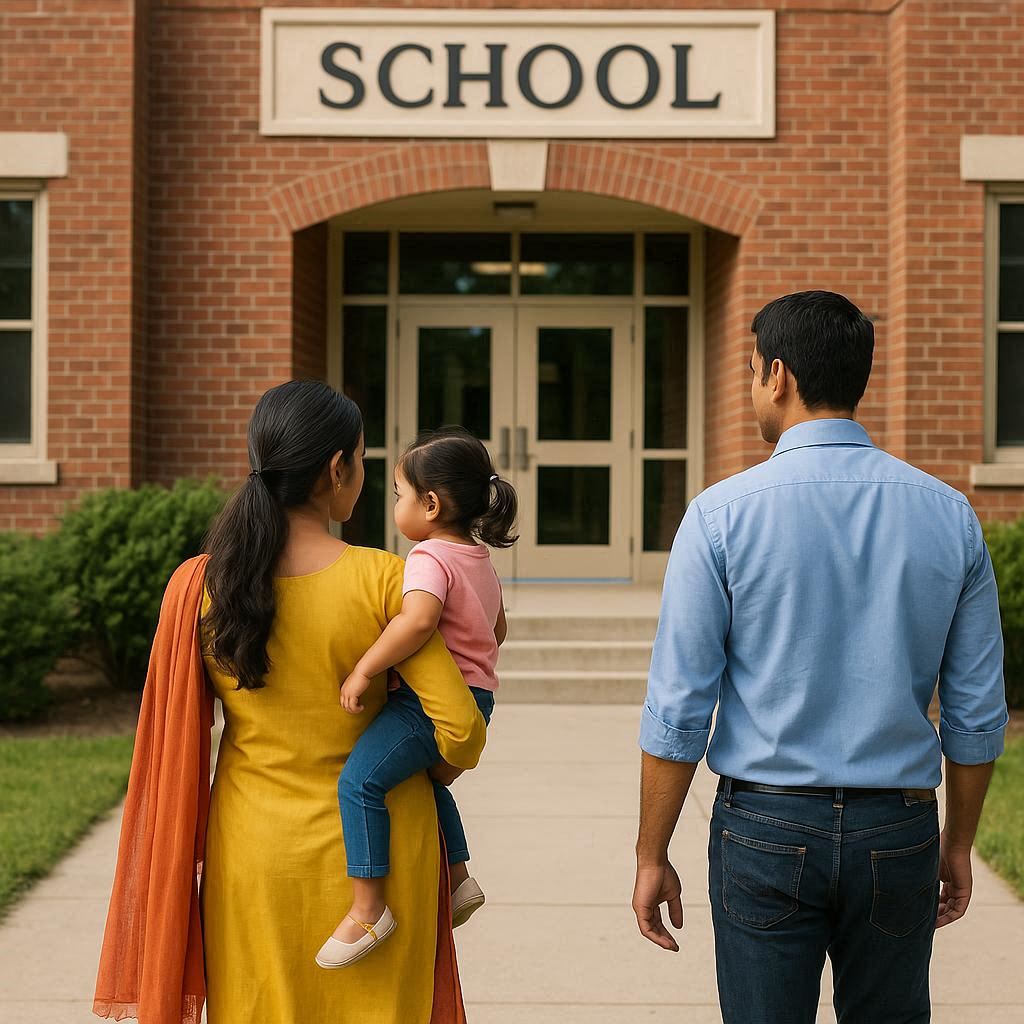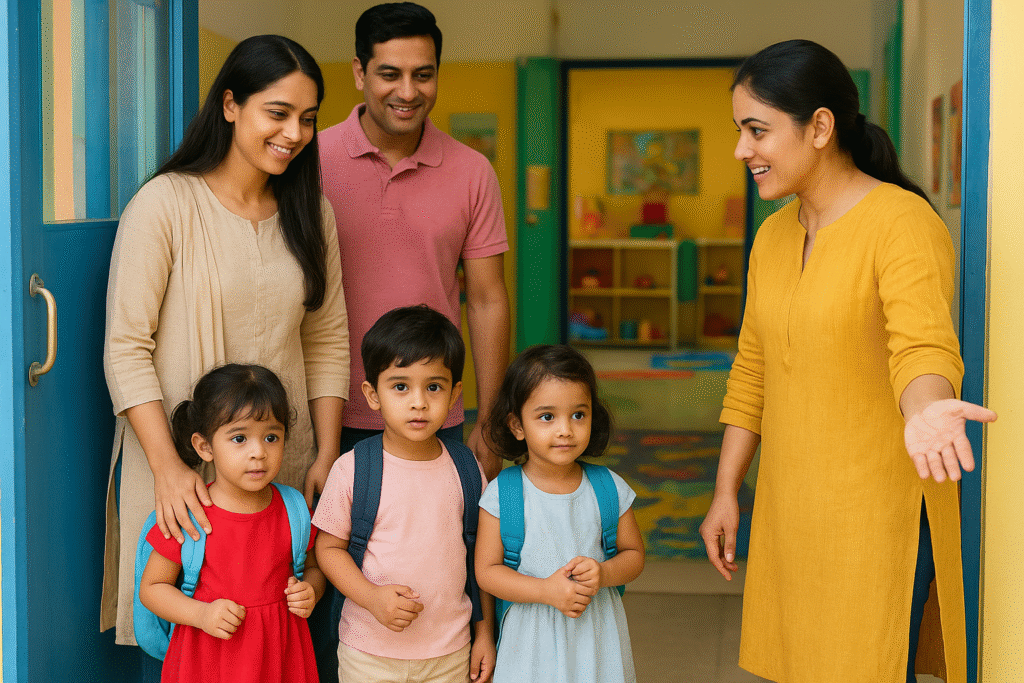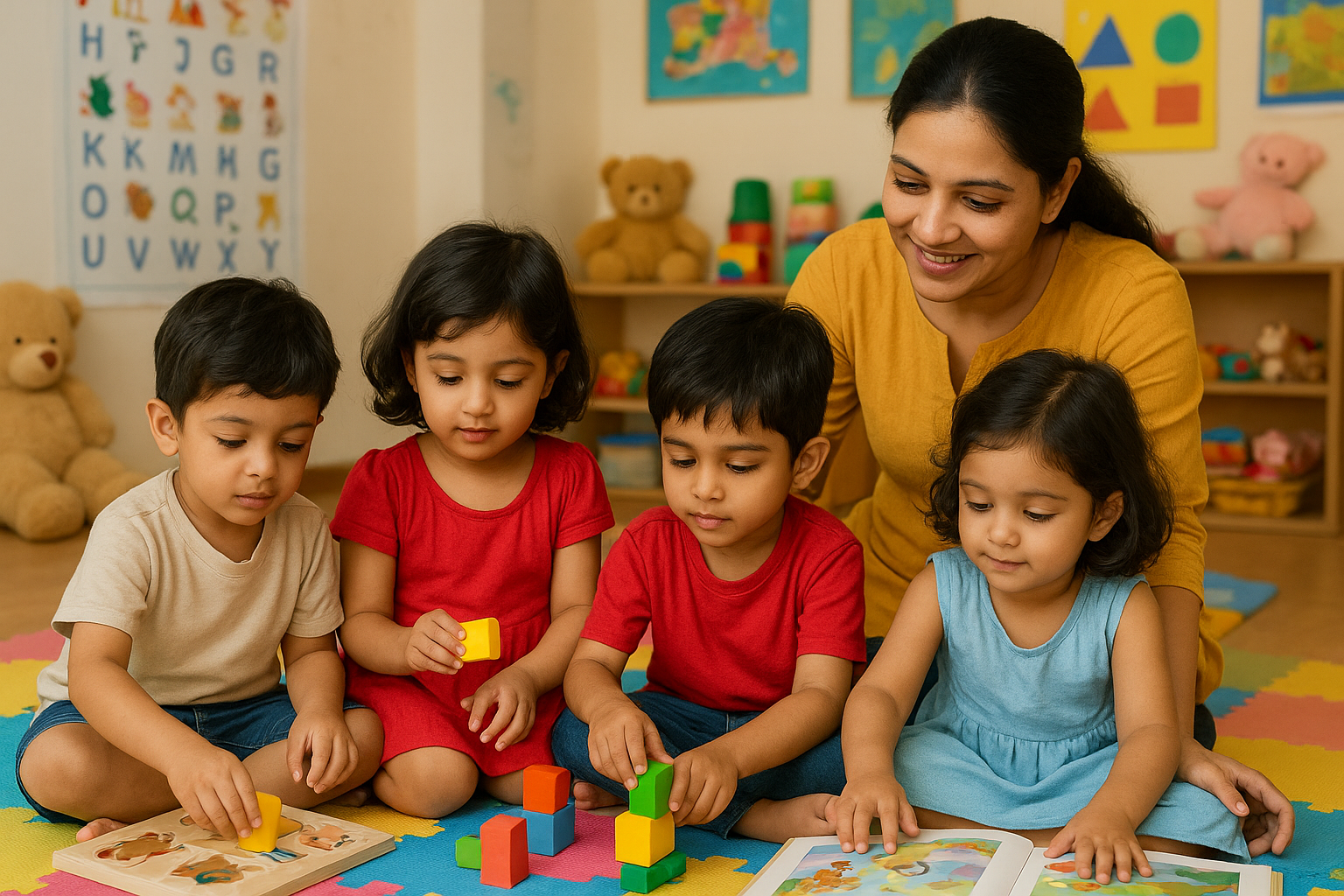Your child is growing quickly, and with every new milestone, they’re becoming more independent and curious about the world. As a parent, you naturally want to support that growth—and one important step is deciding when to enroll them in playgroup or preschool.
But what is the right age for playgroup admission? If you’re thinking about preschool admission, it’s natural to have many questions. Is your child truly ready for this big transition? What is the usual age range for preschoolers? And what can you really expect your little one to learn in a preschool? To help answer these questions, we’ve gathered insights from early childhood education experts.

What Is the Right Age for Playgroup Admission?
Most early childhood experts agree that children are generally ready for playgroup between 2 to 3 years of age. At this stage, toddlers start developing independence, basic communication, and social skills that prepare them for a group learning environment.
By age 3, many children move on to nursery or pre-kindergarten, where learning is still play-based but slightly more structured.
In India, as per the National Education Policy (NEP) 2020, the foundational stage of education begins at 3 years and continues up to 8 years. This stage includes:
- Nursery (3–4 years) – Play-based introduction to learning.
- Kindergarten 1 (4–5 years) – Hands-on, structured play and pre-literacy skills.
- Kindergarten 2 (5–6 years) – Preparation for primary school.
- Classes 1 and 2 (6–8 years) – Early elementary years under the foundational stage.
👉 This means if your child hasn’t joined playgroup at 2 or even 2.5 years, it doesn’t mean they’re “too late.” What matters most is whether they are developmentally ready.
Signs That Your Child Is Ready for Preschool
Instead of focusing only on age, look for preschool readiness signs. If your child shows most of these, they’re likely ready for playgroup admission:
- ✅ Separation Readiness – Can stay away from parents for a few hours without distress.
- ✅ Basic Communication – Can express needs using words, phrases, or gestures.
- ✅ Social Interest – Enjoys playing with other children, sharing toys, or taking turns.
- ✅ Physical Development – Able to walk, run, and perform simple self-care tasks like eating independently.
- ✅ Routine Adaptation – Can follow simple instructions and adjust to daily schedules like snack time or nap time.
- ✅ Emotional Maturity – Can handle small frustrations with support and express feelings.
If your child meets most of these points—whether they’re 2, 2.5, or 3+—they are ready for playgroup.
Is It a Problem If My Child Starts Playgroup Later?
Not at all. Many parents worry that starting preschool later will put their child behind, but research shows this is not the case. Children who join play school at 3 or even later still enjoy the same developmental benefits:
- 🌟 Social & Emotional Development – Learning to cooperate, share, and build friendships.
- 🌟 Language Growth – Exposure to songs, stories, and conversations improves vocabulary and communication.
- 🌟 Cognitive Development – Activities like puzzles and pretend play strengthen memory and problem-solving.
- 🌟 School Readiness – Familiarity with routines and structured activities prepares children for kindergarten.
In fact, children who join later sometimes adapt faster because they are emotionally more secure and confident.

How to Prepare Your Child for Playgroup Admission
If you’ve decided it’s time for your child to begin play school, here are some simple ways to make the transition smoother:
- 👩👧 Visit the preschool together to help your child feel comfortable with the environment.
- 📖 Read picture books about preschool to reduce anxiety and build excitement.
- 😊 Share happy stories about your own school days to create a positive outlook.
- 🧸 Encourage pretend play—role-play as teacher, student, or classroom activities at home.
- 🕑 Practice routines like snack times and nap schedules that mimic preschool.
- 💬 Talk positively about preschool—emphasize fun, friends, and activities instead of rules.
Final Thoughts
The common question—“Is my child late for play group admission?”—often comes from comparing timelines with other families. But the truth is: there is no one perfect age for preschool.
What truly matters is your child’s readiness—emotionally, socially, and physically. Whether they start at 2.5, 3, or even a little later, they will still benefit from the joyful learning, social connections, and cognitive growth that playgroup provides.
Remember: preschool is not a race—it’s the beginning of a lifelong journey of learning. Start when your child is ready, and choose a nurturing, child-centered preschool environment where they can thrive.
❓ FAQs
- 1. What is the right age for playgroup admission in India?
Most children are ready for playgroup between 2 to 3 years of age. By 3+, many transition to nursery. As per NEP 2020, preschool foundational learning begins at age 3. - 2. Is my child late if they start preschool after 3 years?
No. Children who begin play school a little later can still catch up quickly. Readiness matters more than age, and many children adapt better when they feel secure and confident. - 3. What signs show my child is ready for playgroup?
Look for preschool readiness signs such as the ability to stay away from parents for short periods, basic communication, interest in social play, and ability to follow routines. - 4. What are the benefits of playgroup for kids?
Playgroup supports social, emotional, language, and cognitive development, builds independence, and prepares children for structured learning in kindergarten. - 5. How can I prepare my child for playgroup?
Introduce routines at home, visit the preschool together, encourage pretend play, read books about school, and talk positively about the experience. - 6. Can starting play school at an earlier age benefit my child?
Yes, starting play school at an earlier age can help children develop personal, social and emotional skills, adapt to routines, and build a foundation for lifelong learning.

